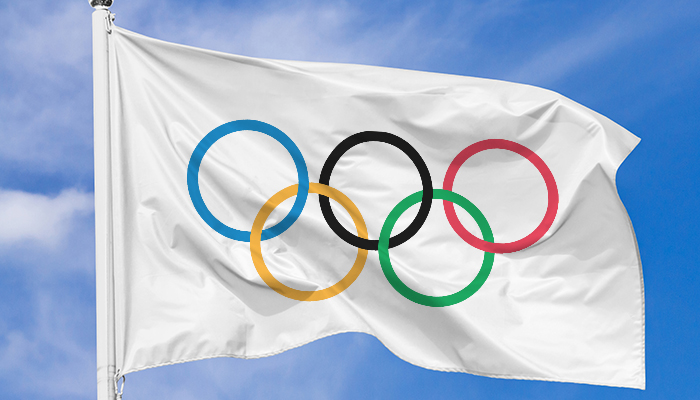The Legacy of Hosting the Olympic Games: Is It Worth It?
 Hosting the Olympic Games
Hosting the Olympic Games
- Costs and Benefits of Olympic Games
- Some Cities Balk at High Cost
- Olympic Sports Betting
- Host Countries for Modern Olympic Games
- Summer Olympic Games Host Countries
- Winter Olympic Games Host Countries
- References
Do countries benefit from hosting the Olympic Games? If they don’t, is national pride enough to offset the tremendous economic cost nations sink into getting and hosting the games? What impact does it have on Olympics sports betting? The Olympic legacy is often one of unused, dilapidated venues, costly budget deficits, and failed economic promises.
While the Olympic Games undoubtedly offer unparalleled global exposure and a platform for cultural exchange, the financial implications for host cities are significant. Striking a balance between creating a memorable event and ensuring fiscal responsibility is a staggering challenge for any city aspiring to host the Olympics.
In recent years, faced with criticism, the International Olympic Committee has grappled with the need to make the Games more financially sustainable. An ongoing debate over the cost of hosting the Olympics continues to shape the future of this iconic sporting event, even threatening its existence, despite its popularity with hundreds of millions worldwide.
Costs and Benefits of Olympic Games
The allure of hosting the Olympic Games [1] is undeniable – a chance to showcase cultural richness, and the promise of economic growth. Not to mention an opportunity to flex your athletic dominance.
However, the price tag attached to this grand spectacle often raises eyebrows and sparks debates about its feasibility. The cost of hosting the Olympic Games has consistently escalated over the years, prompting host cities to grapple with financial challenges long after the closing ceremony.
One of the primary contributors to the soaring costs lies in the infrastructure demands imposed by the IOC. Host cities are required to construct state-of-the-art stadiums, athletes’ villages, and various sports facilities. These infrastructural projects, while impressive, often result in significant budget overruns. The pressure to create world-class venues that align with the IOC’s standards can strain the financial resources of even the most economically robust cities.
The Olympic Games’ security requirements also contribute substantially to the overall cost. In an era marked by heightened global security concerns, host cities must invest heavily in advanced security measures to ensure the safety of athletes, spectators, and dignitaries. This often involves deploying extensive law enforcement and military resources, leading to substantial expenditures that can exceed initial estimates.
Some Cities Balk at High Cost
In 2014, Oslo famously dropped its high-profile bid for a future winter olympic games [2] over what it called excessive demands from the IOC. Moreover, the bidding process itself places financial burdens on candidate cities. Expenses related to marketing campaigns, promotional events, and the development of comprehensive bid proposals can run into millions of dollars. The competition to outdo rival bids and win the IOC’s favor further intensifies the financial strain on aspiring host cities.
The construction of Olympic villages to accommodate athletes during the Games is another substantial cost. While these villages serve as temporary residences, the expenditure associated with their construction is significant. After the Olympics, repurposing or selling these facilities can be a complex task, often resulting in underutilization and additional financial strain.
After the Brazil games in 2016 [3], the government was heavily criticized for the expense of many new sporting venues that were soon abandoned, while the homeless and poor were still destitute. In many cases, countries and cities must invest in sporting venues for sports that are not popular outside of a niche fanbase that pays attention to it once every four years.
Even ice skating and gymnastics, two sports that are popular during the Games, result in expensive venues that frequently struggle to make back their investment once the visiting countries go home. The long-term economic benefits promised by hosting the Olympics don’t always materialize as expected.
While the Games may boost tourism and stimulate local economies during the event, the post-Olympic era can bring about economic challenges. Maintaining the costly infrastructure, which was initially constructed for the Games, can become a financial burden for cities already grappling with the aftermath of the massive investment. Municipal governments must weigh the positives and negatives of hosting the Olympic games.
In recent years, the escalating costs and potential financial risks have led to a decline in the number of cities willing to bid for the Olympics. According to Vox [4], the cost of the 2020 summer games scheduled for Tokyo were running as much as four times above what was budgeted. That study by Vox cited experts who performed an extensive analysis of olympic expenditures.
Victor Matheson and Robert Baade, two economists, wrote that “the short-run benefits of tourist spending during the Games; the long-run benefits of the ‘Olympic legacy’ which might include improvements in infrastructure and increased trade, foreign investment or tourism after the Games; and intangible benefits such as the “feel-good effect” or “civic pride” were among the benefits of hosting.
Officials in Los Angeles and Rio de Janeiro have revealed that the economics of hosting the Olympic Games didn’t make sense, even when measured against an “Olympic legacy”. The struggles for nations to find good reasons to host the Olympics have led some to call for reform.
One solution may be to construct 2-3 permanent homes for both the summer and winter games, and rotate through them. Participating countries could even foot some of the bill. But so far, the IOC has not been successful in making major changes to the way the games are held.
Olympic Sports Betting
Though the Olympic Games are not a seasonal activity, and only roll around every two years, the event is a global phenomenon. As a result, Olympics sports betting is a popular activity. The possible backlash against hosting the Olympic Games could result in a net loss for betting on Olympic Sports, but that has not been the case yet.
Sports betting is growing in earnest in the US, and several large states (notably California, which would be the fifth largest economy in the world if it were its own country) do not yet have legal sports betting. Whether or not hosting the Olympics is a boon or a bust for the host country, that won’t likely impact Olympic Games odds and revenue for sportsbooks.
Host Countries for Modern Olympic Games
The modern Olympic Games date back to the late 19th century, when the competition was revived in Athens [5], where the games originated several centuries prior. Those first modern games were held in April, and 14 nations took part, with 241 athletes.
Summer Olympic Games Host Countries
- 1896 – Athens, Greece
- 1900 – Paris, France
- 1904 – St. Louis, United States
- 1908 – London, United Kingdom
- 1912 – Stockholm, Sweden
- 1920 – Antwerp, Belgium
- 1924 – Paris, France
- 1928 – Amsterdam, Netherlands
- 1932 – Los Angeles, United States
- 1936 – Berlin, Germany
- 1948 – London, United Kingdom
- 1952 – Helsinki, Finland
- 1956 – Melbourne, Australia
- 1960 – Rome, Italy
- 1964 – Tokyo, Japan
- 1968 – Mexico City, Mexico
- 1972 – Munich, West Germany
- 1976 – Montreal, Canada
- 1980 – Moscow, Soviet Union
- 1984 – Los Angeles, United States
- 1988 – Seoul, South Korea
- 1992 – Barcelona, Spain
- 1996 – Atlanta, United States
- 2000 – Sydney, Australia
- 2004 – Athens, Greece
- 2008 – Beijing, China
- 2012 – London, United Kingdom
- 2016 – Rio de Janeiro, Brazil
- 2020 – Tokyo, Japan (postponed to 2021 due to the COVID-19 pandemic)
- 2024 – Paris, France (upcoming)
Winter Olympic Games Host Countries
- 1924 – Chamonix, France
- 1928 – St. Moritz, Switzerland
- 1932 – Lake Placid, United States
- 1936 – Garmisch-Partenkirchen, Germany
- 1948 – St. Moritz, Switzerland
- 1952 – Oslo, Norway
- 1956 – Cortina d’Ampezzo, Italy
- 1960 – Squaw Valley, United States
- 1964 – Innsbruck, Austria
- 1968 – Grenoble, France
- 1972 – Sapporo, Japan
- 1976 – Innsbruck, Austria
- 1980 – Lake Placid, United States
- 1984 – Sarajevo, Yugoslavia
- 1988 – Calgary, Canada
- 1992 – Albertville, France
- 1994 – Lillehammer, Norway
- 1998 – Nagano, Japan
- 2002 – Salt Lake City, United States
- 2006 – Turin, Italy
- 2010 – Vancouver, Canada
- 2014 – Sochi, Russia
- 2018 – Pyeongchang, South Korea
- 2022 – Beijing, China
- 2026 – Milan-Cortina, Italy (upcoming)
References
- Olympic Games, Wikipedia, Retrieved January 16, 2024
- Ben, Mathis-Lilley, (October 2, 2014), The IOC Demands That Helped Push Norway Out of Winter Olympic Bidding Are Hilarious, Slate, Retrieved January 16, 2024
- 2016 Summer Olympics, Wikipedia, Retrieved January 16, 2024
- Demsas, Jerusalem, (August 1, 2021), Hosting the Olympics comes at a massive cost, Vox, Retrieved January 16, 2024
- 1896 Summer Olympics, Wikipedia, Retrieved January 16, 2024




